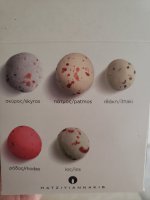I thought I would ask your thoughts oh Philoxenia - or the Greek way, or art, of hospitality. I noticed this when I travel in Greece. People are so kind, they often go out of the way for us, when I feel that they don't have to! How can one describe this to someone?
From what I understand, Philoxenia is not merely a practice but a deeply ingrained value within Greek culture that extends far beyond the simple act of hosting. It reflects a genuine, heartfelt welcome to strangers, treating them with the same respect and generosity one would show to a dearly beloved friend. This beautiful tradition, passed down through generations, turns the act of hosting into an art form, embodying warmth, respect, and a profound sense of human compassion. There have been so many stories I can think of...
This thought process was triggered because we were watching My Big Fat Greek Wedding 3 - someone in the village had taken on a Syrian refugee. Is this a Greek hospitality thing? Philoxenia?






